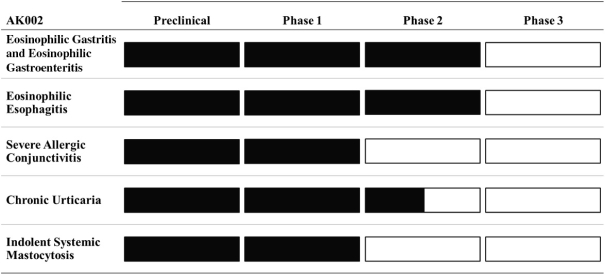Raising additional capital may restrict our operations or require us to relinquish rights to our technologies or product candidates, and if we sell shares of our common stock in future financings, stockholders may experience immediate dilution and, as a result, our stock price may decline.
Until such time, if ever, as we can generate substantial product revenues, we expect to finance our cash needs through a combination of equity offerings, debt financings, partnerships and marketing, distribution or licensing arrangements. We do not have any committed external source of funds. We may also from time to time issue additional shares of common stock at a discount from the then current trading price of our common stock. As a result, our stockholders would experience immediate dilution upon the purchase of any shares of our common stock sold at such discount. In addition, as opportunities present themselves, we may enter into financing or similar arrangements in the future, including the issuance of debt securities, preferred stock or common stock. If we issue common stock or securities convertible into common stock, our common stockholders would experience additional dilution and, as a result, our stock price may decline. Debt financing, if available, may involve agreements that include covenants limiting or restricting our ability to take specific actions, such as incurring additional debt, making capital expenditures or declaring dividends.
If we raise additional funds through partnerships or marketing, distribution or licensing arrangements with third parties, we may have to relinquish valuable rights to our technologies, future revenue streams or product candidates or to grant licenses on terms that may not be favorable to us. If we are unable to raise additional funds through equity or debt financings when needed, we may be required to delay, limit, reduce or terminate our product development or future commercialization efforts or grant rights to develop and market product candidates that we would otherwise prefer to develop and market ourselves.
Our principal stockholders and management own a significant percentage of our stock and will be able to exert significant control over matters subject to stockholder approval.
As of June 30, 2019, our executive officers, directors, holders of 5% or more of our capital stock and their respective affiliates beneficially owned approximately 79.5% of our outstanding voting stock. As a result, this group of stockholders has the ability to significantly influence all matters requiring stockholder approval, including the election of directors, amendments of our organizational documents or approval of any merger, sale of assets or other major corporate transaction. This may prevent or discourage unsolicited acquisition proposals or offers for our common stock that you may feel are in your best interest as one of our stockholders. The interests of this group of stockholders may not always coincide with your interests or the interests of other stockholders and they may act in a manner that advances their best interests and not necessarily those of other stockholders, including seeking a premium value for their common stock, and might affect the prevailing market price for our common stock.
Sales of a substantial number of shares of our common stock in the public market could cause our stock price to fall.
If our existing stockholders sell, or indicate an intention to sell, substantial amounts of our common stock in the public market afterany lock-up or other legal restrictions on resale discussed in this prospectus supplement lapse, the trading price of our common stock could decline. Based upon the number of shares outstanding as of June 30, 2019, upon the closing of this offering, we will have outstanding a total of 47,729,849 shares of common stock, assuming no exercise of the underwriters’ option to purchase additional shares of common stock and no exercise of outstanding options.
The lock-up agreements pertaining to this offering will expire 90 days from the date of this prospectus supplement. Afterthe lock-up agreements expire, up to approximately 21.0 million of
S-13


